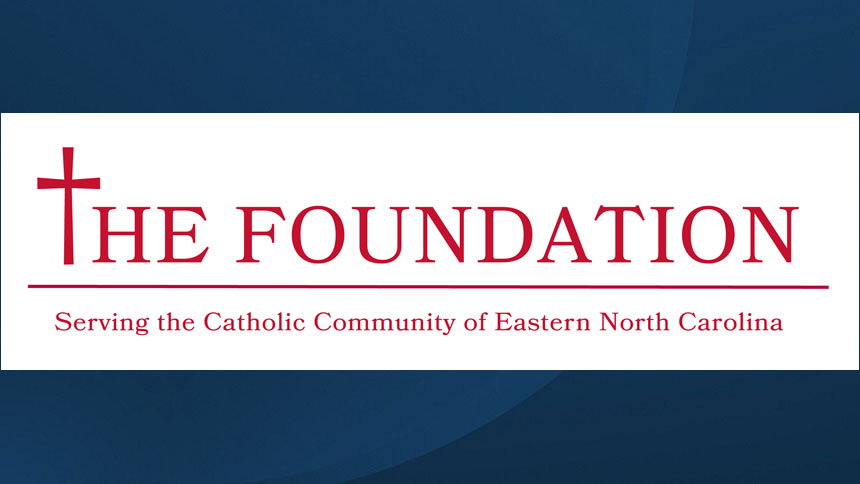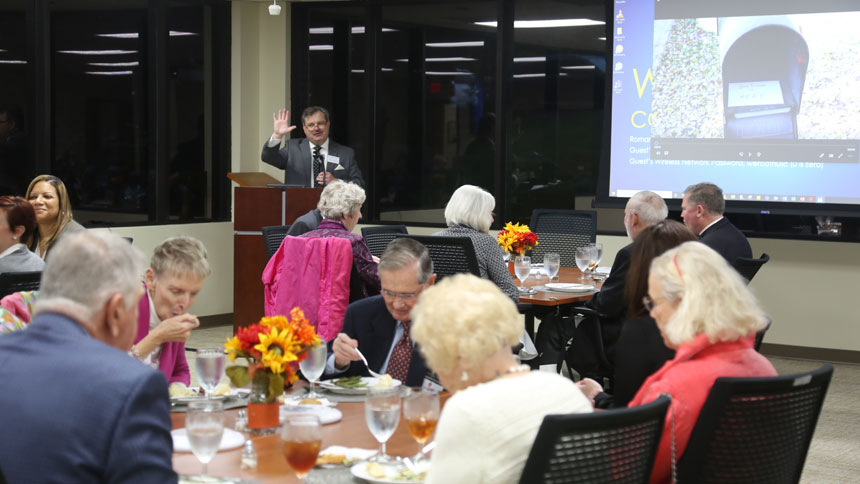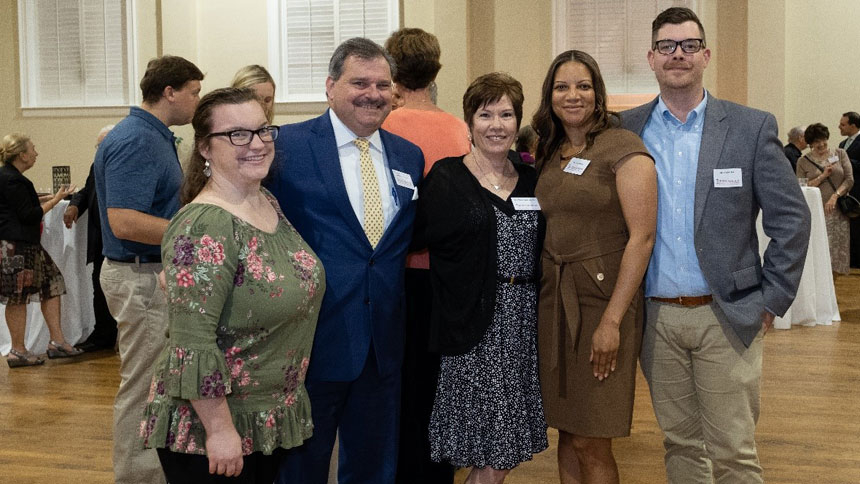
In August 2018, Bishop Luis Rafael Zarama established The Foundation of the Roman Catholic Diocese of Raleigh to cultivate endowed and major gifts for the long-term benefit of parishes, schools, programs and ministries. A volunteer Board of Directors was assembled in early 2019 and began organizing to ensure proper fiscal and administrative management of The Foundation. Bishop Zarama and the Board of Directors hired Foundation Executive Director Joe Langenderfer, CFRE, in June.
We spoke with Joe about the priorities, progress and future of The Foundation.
What are some highlights since the founding of The Foundation?
JL: One highlight is having successfully recruited the volunteer Board of Directors and staff. Those appointments led to creating our annual operations plan and completing nearly all intended functions, such as contacting 100% of pastors and endowment donors & beneficiaries. While not in the original plan for the first year, donor inquiries and outreach have resulted in the creation of nine new endowment funds under Foundation management. I am also very excited about our marketing plan that includes an e-newsletter (sign up here) and a new website. It highlights current endowment funds and provides full transparency about the charitable work, assets, human impact and operation of this 501 c 3 grant-making organization.
What are the current priorities?
JL: Collaborations with diocesan offices have helped dictate Foundation priorities. We currently have three main priorities:
- To continue with our mission in promoting existing endowment funds and growing new long-term gift vehicles. We have 98 parishes/missions and 24 schools but only nine parish endowments and 19 school endowments. There is a lot of service opportunity, including 240,000 Catholics to meet and learn about their charitable priorities.
- Support and generate funds for the Seminarian Partnership Program and the Home Mission Society, which grants funding to small parishes and missions who strive to construct and furnish a parish church.
- Finally, it is anticipated that many parishes will be creating new endowment funds, which the Foundation will actively promote. Through a new program initiated by the bishop, parishes that have exceed their Bishop’s Annual Appeal (BAA) cash goals will use a portion of their surplus to create an endowment fund directly benefiting their respective parish operations and ministries. These endowments will be managed by the Foundation.
How do you see the work of The Foundation moving forward in light of the current pandemic?
JL: The office remained open and staffed (physically and remotely) and our work continued unimpeded. There were some adjustments, such as increased email communication, phone or webinar meetings in lieu of in-person gatherings, and information webinars replaced on-site public seminars. Really, the biggest change going forward will be a focus on virtual meetings. As a result, the Foundation has been actively promoting this technology and its use to conduct public information webinars, such as Wills Seminars, that are free to parishes, schools and agencies.
Being new to North Carolina, has anything surprised or inspired you about the diocese?
JL: I’m inspired by the enormous untapped potential of generous benefactors and the charitable works of the diocesan ministries. The Foundation hopes to serve as a legitimate advocate for the good work provided by diocesan ministries and a conduit to people who desire but may not know how to partner with those life-giving efforts.
Have you had any particularly notable meetings/interactions with people in the diocese?
JL: With over 4,100 miles of travel throughout the diocese since last June, I’ve participated in numerous individual and group meetings. A visit to Belmont Abbey and subsequent lunch with three seminarians was certainly a highlight. Honestly, being new to North Carolina, all of my trips have been exciting and noteworthy … from downtown Raleigh to New Bern; from Ft. Bragg in Fayetteville to Jacksonville and Havelock, from Durham and Chapel Hill to Newton Grove and visiting the graves of Dr. Monk, Bishop Waters and Bishop Gossman. The Catholic history of North Carolina and specifically our 54 counties continues to fascinate me.



